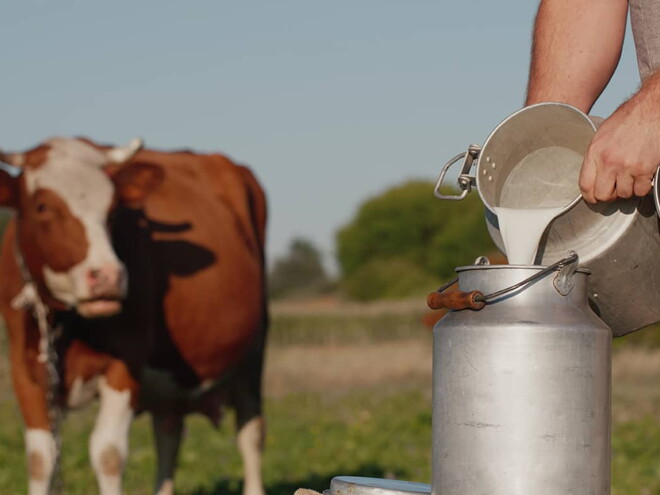
Milk protein allergy —what you need to know
Cow’s milk protein is one of the most common allergens affecting young children in the early years of childhood. Allergies can develop in people of any age, for various reasons. Cow’s milk protein is the leading cause of food allergy in children under three years of age. Rates vary by region, but it is estimated that the incidence of challenge-confirmed cow’s milk protein allergy ranges between 5–8% worldwide (1). If you suspect your child might be allergic to cow’s milk protein, ask your healthcare provider for advice.
Cow’s milk protein allergy (CMPA) occurs when the immune system mistakenly identifies the proteins in cow's milk as harmful substances. This triggers an allergic reaction, which can manifest in various ways. The symptoms of CMPA can range from mild to severe and may include skin rashes, hives, vomiting, diarrhea, and difficulty breathing. In some cases, CMPA can also lead to more serious complications, such as anaphylaxis, a life-threatening allergic reaction is the leading cause of food allergies in children under the age of three. The exact reasons why some children develop CMPA are still not fully understood, but it is believed to be a combination of genetic and environmental factors.
If a child shows signs of cow’s milk protein allergy, it is important to consult a healthcare provider for a proper diagnosis. The healthcare provider will typically conduct a thorough medical history review and may recommend specific tests, such as oral food challenge, skin prick tests or blood tests, to confirm the allergy (2). It is crucial to accurately diagnose CMPA as early as possible to ensure appropriate management and prevent potential complications.
The primary treatment for cow’s milk protein allergy is the elimination of cow's milk and all products containing cow's milk proteins from the child's diet. This includes avoiding dairy products such as milk, cheese, yogurt, and butter. In some cases, breastfeeding mothers may also need to eliminate dairy from their diet to prevent the proteins from passing into breast milk. The healthcare provider may also recommend suitable alternative sources of nutrition, such as hypoallergenic formula with hydrolysed proteins or plant-based proteins.
Managing cow’s milk protein allergy requires careful attention to food labels and ingredients. It is essential to read labels thoroughly and avoid foods that contain hidden sources of cow's milk proteins, such as whey, casein, or lactose. It is also important to educate family members, caregivers, and school staff about the child's allergy to prevent accidental exposure to cow's milk proteins.
In some cases, children may outgrow cow’s milk protein allergy as they get older. Regular follow-up with a healthcare provider is necessary to monitor the child's progress and determine if reintroducing cow's milk proteins into their diet is safe. However, it is important to note that some individuals may continue to have allergies to cow's milk proteins throughout their lives. Living with cow’s milk protein allergy can be challenging for both children and their families. It requires careful planning and preparation to ensure the child's nutritional needs are met while avoiding cow's milk proteins. It is also important to provide emotional support for the child, as they may feel different or excluded from certain social activities due to their dietary restrictions.
In conclusion, cow’s milk protein allergy is a common condition that affects many young children worldwide. It is important for parents to be aware of the signs and symptoms of CMPA and seek medical advice if they suspect their child may have this allergy. With proper diagnosis and management, children with cow’s milk protein allergy can lead healthy and fulfilling lives.
Minor sensitivities in children like itchiness, rashes, upset tummy and bloating are all early signs of allergies. The right proteins in your child’s diet can help minimise these bodily discomforts. NANKID OPTIPRO HA 3 uses Gentle Protein*, which are cow’s milk proteins broken through a unique NESTLÉ process so that they are 10X smaller. This makes the proteins easy to digest and less likely to trigger allergic reactions or minor sensitivities in children.
With NANKID OPTIPRO HA 3, you can let your child feel the world, free from discomfort.
NANKID OPTIPRO HA 3 contains Partially Hydrolysed Protein, 50mg of DHA & ARA** and 100 million BIFIDUS BL beneficial bacteria**
*Refers to Partially Hydrolysed Protein
Reference
- Vandenplas, Y., et al. (2007). Archives of Disease in Childhood, 92(10), 902-908.
- Guidelines for the diagnosis and management of cow’s milk protein allergy (CMPA) in children. 2024. 2nd Edition.